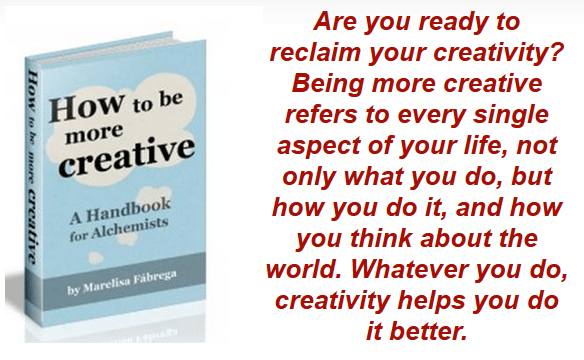
Smart is as smart does.
What does it mean to be “smart”? Many would argue that being smart depends on your brain properties and structure. Some of the brain properties that tend to correlate with intelligence include the following:
- Overall brain volume;
- Grey matter volume;
- White matter volume;
- White matter integrity;
- Cortical thickness; and
- Neural efficiency.
 However, other people would argue that being smart depends on the quantity and the quality of the education a person has acquired. Still others would say that smart people are those who are good at solving problems, or making money, or adapting to change. I would argue that—to a large extent—being smart is about what you know, and about your ability to apply said knowledge. And that’s what this post is about: I’ve collected some of the things—30 to be exact—that really smart people know. You’ll find the 30 things that really smart people know, below.
However, other people would argue that being smart depends on the quantity and the quality of the education a person has acquired. Still others would say that smart people are those who are good at solving problems, or making money, or adapting to change. I would argue that—to a large extent—being smart is about what you know, and about your ability to apply said knowledge. And that’s what this post is about: I’ve collected some of the things—30 to be exact—that really smart people know. You’ll find the 30 things that really smart people know, below.
1. Discomfort Is a Part of Life.
Achieving things that are important to you will require that you tolerate some discomfort, frustration, and psychological pain. For example, if you want to get in shape, you’ll have to exercise, which comes with its fair share of aches and pains.
As a second illustration, if you want to learn something new, you’ll have to tolerate the discomfort that comes from not knowing, struggling to do something that is foreign to you, and feeling like you’re not making the progress you wish you were making.
Smart people know that they need to tolerate discomfort in order to improve themselves and grow.
2. No One Is Coming to The Rescue.
What happens in your life is up to you. You’re responsible for your life. If there’s something that you want to happen, you have to make it happen. No one is going to make things happen for you. You have to rescue yourself.
3. Stop Playing the Victim Role.
You’re the hero of your story. The hero sometimes gets stuck in a bad place for a while, but they don’t wallow in self-pity and give away their power.
Instead, they look for a way out: they crawl out through an air vent; they dig a tunnel; or they take an ax and break the door down. No matter what happens, it’s your life, and you’re at the helm.
4. Choose Your Friends Wisely.
Author and motivational speaker Jim Rohn once famously quipped: “You are the average of the five people you spend the most time with.” Your friends will influence what you do and the habits that you develop. They’ll even impact your mood.
Surround yourself with a carefully curated group of people whom you respect, and with whom you share common values. As Darrah Brustein, founder of Network Under 40, says: “It’s important to consider the five people who are in your inner circle, because they are going to deeply and profoundly influence you.”
Choose a few people who will help you to become the best version of yourself, and then carefully maintain those friendships.
5. Conformity is For Suckers.
If you give in to society’s pressure to conform, you’ll never discover what you’re capable of. Think for yourself, make your own rules, step away from the well-trodden path, and do your own thing.
6. A Productive Day Starts the Night Before.
What you do at night has a huge impact on how the next day will go. Smart people know this, and they take advantage of this knowledge by following a nighttime routine.
People are different, and what works for one person may not work for another. However, a good nighttime routine should contain the following elements:
- Reflection – Reflect on your day. Think of what you did right, what went wrong, and how you can do better the next day.
- Planning – Write down the three most important things that you need to get done the next day.
- Organization – Set out the clothes that you’ll be wearing the next day, make sure that everything you need is by the door, and do all the prepping for breakfast that you can.
- Calming — include an activity in your nighttime ritual that will help you to relax (shut down your brain), such as drinking chamomile tea, doing some Tai Chi, or doing some breathwork.
Lastly, make sure that you go to sleep at a reasonable hour so that you’re well-rested the next day.
7. Start Your Day Off Right.
The first hour of the day is one of the most critical because it sets the tone for the rest of the day. You should try to do the following every morning in order to start your day the right way:
- Drink water (preferably with lemon).
- Move your body – stretch or do some sort of exercise.
- Eat a healthy breakfast.
- Review your goals for the day.
- Say some affirmations, journal, watch a motivational video on YouTube, or do something else that will get you in the right frame of mind to face the day.
In addition, once you’ve gone through your morning routine, devote one-hour to your most important goal.
8. You Have to Make Time to Exercise.
Regular exercise improves memory and thinking skills, it boosts your mood, it helps to ward off disease, and it increases longevity. It even makes you more productive. Smart people know that making time to exercise is a no-brainer.
I do two types of exercise on a regular basis:
- I lift weights; and
- I run.
Also, I just recently started doing High Intensity Interval Training (HIIT), and I’m loving it. It only takes 20 minutes, and you get a lot of bang for your buck.
9. Financial Literacy Is Vital.
Financial literacy is knowledge that allows an individual to make informed and effective decisions with their money. It’s about knowing how to budget, manage debt, pay for big ticket items, invest for the future, and be prepared for emergencies.
Smart people know that in order to have financial security, they need to understand how money works.
10. Read a Lot.
Smart people are readers. Successful CEOs, leaders, entrepreneurs, and politicians read frequently. Reading teaches you to focus, it keeps you informed, it stretches the mind, it exposes you to different perspectives, and it helps in the creation of new ideas.
If you want to be smarter, go out and get yourself books written by smart people and read them.
11. Learn How to Learn.
In order to keep up with the changes and advances in today’s fast-paced world, we need to have the ability to learn new things faster. Some even refer to the ability to learn quickly and efficiently as a superpower.
You can get started learning how to learn by reading my post, 30 Tips for Learning Any Skill Fast.
12. Constantly Stretch Out of Your Comfort Zone.
As Neale Donald Walsh once said, “Life begins outside of your comfort zone.” After all, the only way to grow, build your capabilities, and reach your full potential is by stepping outside of your comfort zone.
Some easy ways to stretch out of your comfort zone include the following: trying a new sport; having lunch in a new setting; or trying psychogeography dérive– an exploration of urban environments that emphasizes playfulness and “drifting” (basically it’s going for a walk and just allowing yourself to get “lost”).
13. Learn From Your Mistakes.
Instead of being afraid of making mistakes, take a trial and error approach to life. Try something new, analyze what you did right and what you did wrong, modify your approach accordingly, and try again. That is, see your mistakes not as failures, but as feedback.
Smart people know that it’s OK to make mistakes, as long as you’re learning from those mistakes.
14. Beware of Irrational Thinking.
Even smart people can fall victim to irrational thoughts, also known as cognitive distortions. This includes things such as the following:
- Catastrophic Thoughts: Here’s an example: “My boyfriend left me, so I’m going to die alone”. The reality is that the fact that one man doesn’t want to be with you doesn’t mean that no man will ever want to be with you.
- Personalization: As an illustration: “My boss is upset. I must have done something wrong.” The reality is that there are millions of reasons why your boss could be upset, none of which have anything to do with you.
- All-or-Nothing Thinking: An example of this type of thinking is the following: “I had set the goal of exercising three times a week, but this week I only exercised once. I might as well just give up on this goal.” The reality is that you just fell off the wagon this week, but you can always get back on next week.
Smart people are aware of their thoughts, and they constantly question whether what they’re thinking is based on evidence, or if they’re distorting reality.
15. Practice Self-Care.
Smart people know that self-care isn’t about self-indulgence. Instead, it’s about the following:
- Taking good care of yourself so that you can maintain your physical, mental, and emotional health;
- Making sure that you’re not taking on more than you can handle;
- Keeping a good balance between exertion and relaxation; and
- Showing yourself self-compassion and self-love.
16. Carefully Curate Your Life.
I wrote above that you should curate your friends. However, it’s not just your friends who need to be carefully curated. Smart people curate everything in their lives: the books they read, the stuff they buy, the furniture in their home, their clothes and shoes, the TV shows they watch, and so on.
Smart people make sure that anything that comes into their lives has been carefully selected by them.
17. Develop Good Habits.
You’ve heard it a million times: first you make your habits, and then your habits make you. Ask yourself: “What do I want to achieve?” Then ask: “What habit will get me there?” If you manage to build those habits, then those habits will take you to where you want to go.
18. Take Time to Think.
Most of the time we’re on the go: answering phone calls; writing emails; picking up the dry cleaning; cooking dinner; and so on. However, it’s vital to stop and take the time to just think. Every day you should think about the following:
- How do I want to feel today?
- What do I need to do to feel that way?
- What do I want my day to look like?
- How can I best use my scarce resources today (time, money, attention) to achieve what I want?
At least quarterly you should stop and think about the following:
- What projects am I working on?
- Do these projects reflect who I am or who I want to become?
- Am I on track to achieve these projects?
- What do I need to do to move these projects forward?
At least once a year stop and think about things such as the following:
- Am I happy with my life?
- How am I doing in each life area (health, relationships, finances, and so on)? Where do I need a life reboot?
- If I keep moving in the direction I’m currently moving in, where will I be in five years?
Smart people know that they need to stop and take time to think.
19. Pick Yourself.
Whatever it is that you want to accomplish or achieve, stop waiting for somebody else to pick you. Instead, pick yourself. Look at the following:
- Can’t find a publisher for your novel? Self-publish it.
- Can’t get a promotion at work? Start your own company and make yourself the CEO.
- Can’t get any store to carry your handmade bracelets? Start an Etsy shop.
If you keep raising your hand and no one calls on you, call on yourself.
20. Ask the Right Questions.
Self-development guru Tony Robbins has said that the quality of your life is determined by the quality of the questions you ask. This is because the questions that you ask yourself frame the debate. As an illustration, if something goes wrong in your life, don’t ask questions like the following:
- Why did this happen to me?
- How could they have done this to me?
- Why didn’t I get it (the promotion, the deal, the grant. . . )?
Questions like these keep you stuck in the past. Instead, ask yourself questions like the following:
- What can I do now to move forward?
- Is there something I can do to get a better outcome?
- What lessons can I learn from this that will help me do better in the future?
21. Make Meditation a Daily Habit.
In his book, Get Some Headspace: How Mindfulness Can Change Your Life in Ten Minutes a Day, Puddicombe explains that meditation can be used for all of the following:
- To treat a wide range of stress-related symptoms including anxiety, depression, anger, and insomnia.
- To improve your focus and concentration.
- To improve your emotional stability and your relationships with others.
- To be happier. Unhappiness has been linked to a mind that’s constantly wandering. Meditation helps to cure you of wandering mind syndrome by increasing your mindfulness.
Smart people know that meditating is one of the best habits that they can adopt.
22. Practice Gratitude.
Simply by giving thanks for what you have–or counting your blessings–you can achieve all of the following:
- Shift your focus from a state of lack to a state of abundance.
- Increase your happiness set point by 25%.
- Improve your health.
- Become more resilient.
Smart people are grateful people.
23. Make Yourself Lucky.
Whether we like it or not, luck plays a large role in life. Nonetheless, as I explain in my post, “How to Make Yourself Lucky”, there are steps you can take and mental attitudes you can adopt to make yourself lucky. Here are some things you can do to make yourself lucky:
-
- Have a positive mental attitude.
- Take the initiative instead of passively waiting for what you want to come to you.
- Meet new people.
- Put yourself out there: write articles on your subject of expertise; showcase your talent on YouTube; create an online portfolio; etc.
- Be of service to others.
- Craft a compelling story for yourself.
And, of course, be prepared. After all: “Readiness is the mother of luck”.
24. Know When to Say “No”.
The only way you can “yes” to the most important people and activities in your life is by saying “no” to everything else. Say “no” to the following:
- Causes you’re not deeply committed to.
- Networking events that will have a negligible impact on your career or sales prospects.
- Taking on more work than you can handle.
- Doing work that other people should be doing.
Follow Baltasar Gracian’s advice in The Art of Worldly Wisdom: “Don’t belong so much to others that you stop belonging to yourself.
25. Include Play and Laughter in Your Life.
Many people think that play is for kids, and that adults should be serious all the time. But smart people know that it’s important for adults to play and have fun.
Playing and having fun can have all of the following benefits:
- Relieve stress – play releases endorphins.
- Strengthen relationships – play is a way to bond with others.
- Stimulate creativity– play can encourage you to take risks, look at things from a different perspective, and notice new connections.
- It provides novelty and pleasure.
- It makes you more productive and helps you to overcome procrastination – it’s easier to get to work on a difficult task when you know you’ll get to do something fun later on in the day.
Smart people schedule play and fun into their day.
26. You Must Bounce Back Quickly from the Unexpected.
When people come across an obstacle in life, most will do the following:
- Complain.
- Blame others.
- Give up.
However, smart people do the following:
- They immediately acknowledge and accept that they’ve come across an obstacle;
- Adapt with composure; and
- Keep going.
Smart people know that the unexpected will happen, and—when it does—they don’t waste time bemoaning their luck. Instead, they bounce back quickly from the unexpected.
27. Let Go of the Need for Perfection.
Perfectionism steals your joy, your self-confidence, and your ability to get things done. Smart people know that the main causes of perfectionism are all-or-nothing thinking and fear of criticism, rejection, and disapproval.
They develop strategies for dealing with any perfectionist tendencies they may have, and they strive for excellence, not perfection.
28. Stop Worrying About What Others Think.
Humans are social creatures. We want to be part of a group. We want to be loved and accepted. And there’s nothing wrong with that.
However, smart people know that they need to strike a healthy balance between their need to belong and their ability to go after their goals and dreams. If they find that they’re worrying too much about what people may think, they do the following:
- They work on trusting themselves more.
- They put things in perspective by reminding themselves that one day they’ll die. After all, the last thing that they want is to be lying on their death beds regretting all the things they didn’t do because they were worried about the opinion of others.
- They learn to be more selective about whose opinion really matters to them.
29. Conscientiousness Is a Vital Character Trait.
Some character traits are more conducive to success than others. There are studies that show that the most important personality trait for predicting success is conscientiousness. Therefore, smart people take steps to become more conscientious.
Here are some of the conscientiousness habits that smart people adopt:
- They have a set date, time, and place to pay their bills to make sure that everything is paid on time.
- They plan their meals each week, go grocery shopping, and prep their meals ahead of time so that they can eat healthy, home-cooked meals.
- They organize their work space at the end of each work day to make sure they’ll be able to find everything they need the next day.
Smart people know that even if they’re not naturally conscientious, they can become more conscientious by adopting the habits of conscientious people.
30. You Must Not Quit.
Achieving your important goals won’t be easy. However, you’ll succeed if you refuse to quit. When a smart person is tempted to quit, they tell themselves things like the following:
- I persist when things get tough.
- I will either find a way or make one.
- Every problem has a solution, and I have the perfect ability to find it.
- Every day I gain more knowledge and insight about what works and what doesn’t, which means I’m getting stronger and wiser.
- Setbacks are temporary.
- I will find a way through this.
- Think! What’s the best thing to do now?
Conclusion
There are many more things smart people know, of course, but I think the list above is a good starting point. Live your best life by reviewing the lessons that really smart people know (and apply them in your life).





Related Posts:




 Marelisa Fabrega is a lawyer and entrepreneur. She holds a Bachelor of Science in Business Administration from Georgetown University in Washington, D.C., as well as a Juris Doctor from the Georgetown University Law Center. You can learn more about her
Marelisa Fabrega is a lawyer and entrepreneur. She holds a Bachelor of Science in Business Administration from Georgetown University in Washington, D.C., as well as a Juris Doctor from the Georgetown University Law Center. You can learn more about her 





